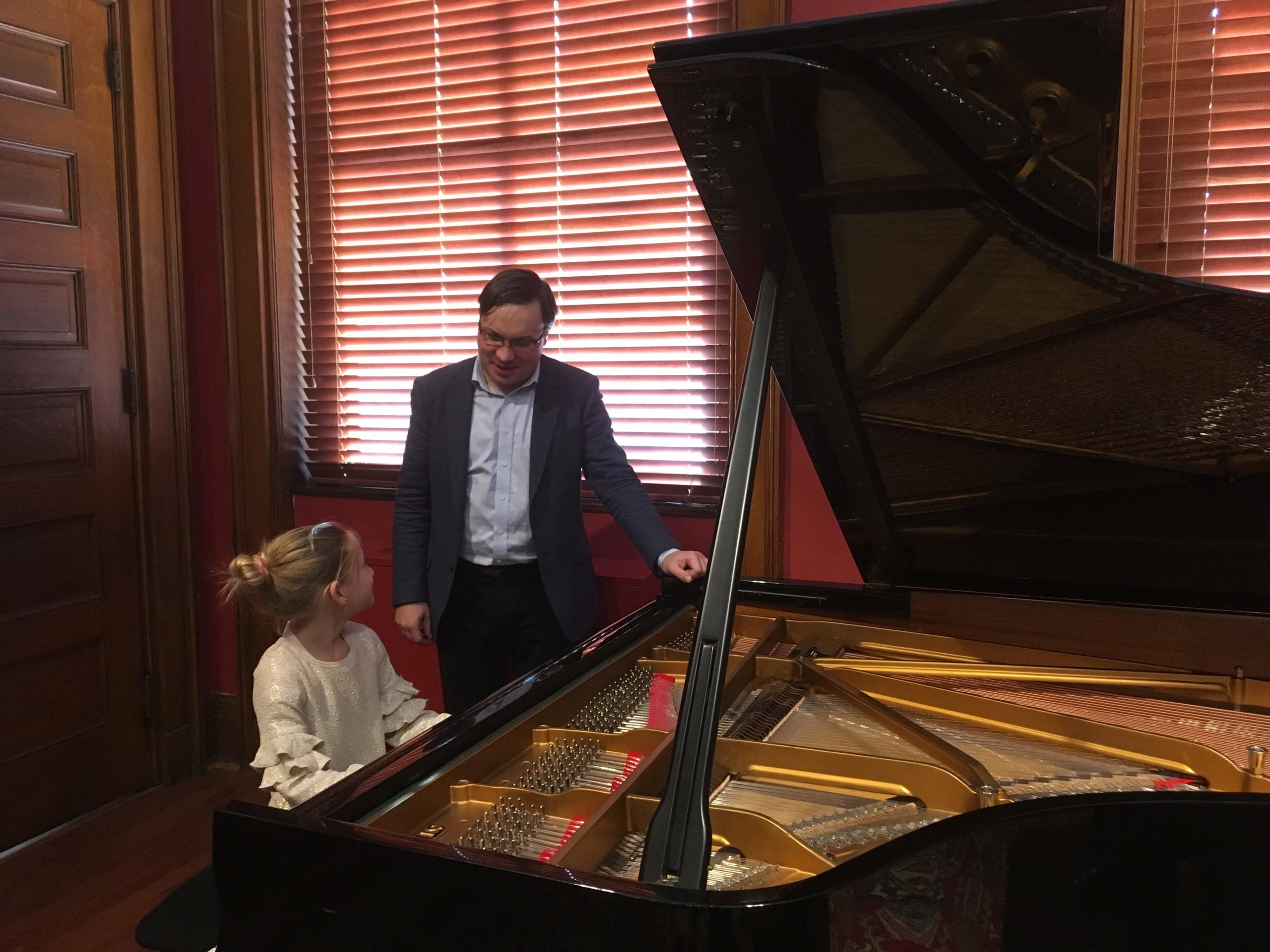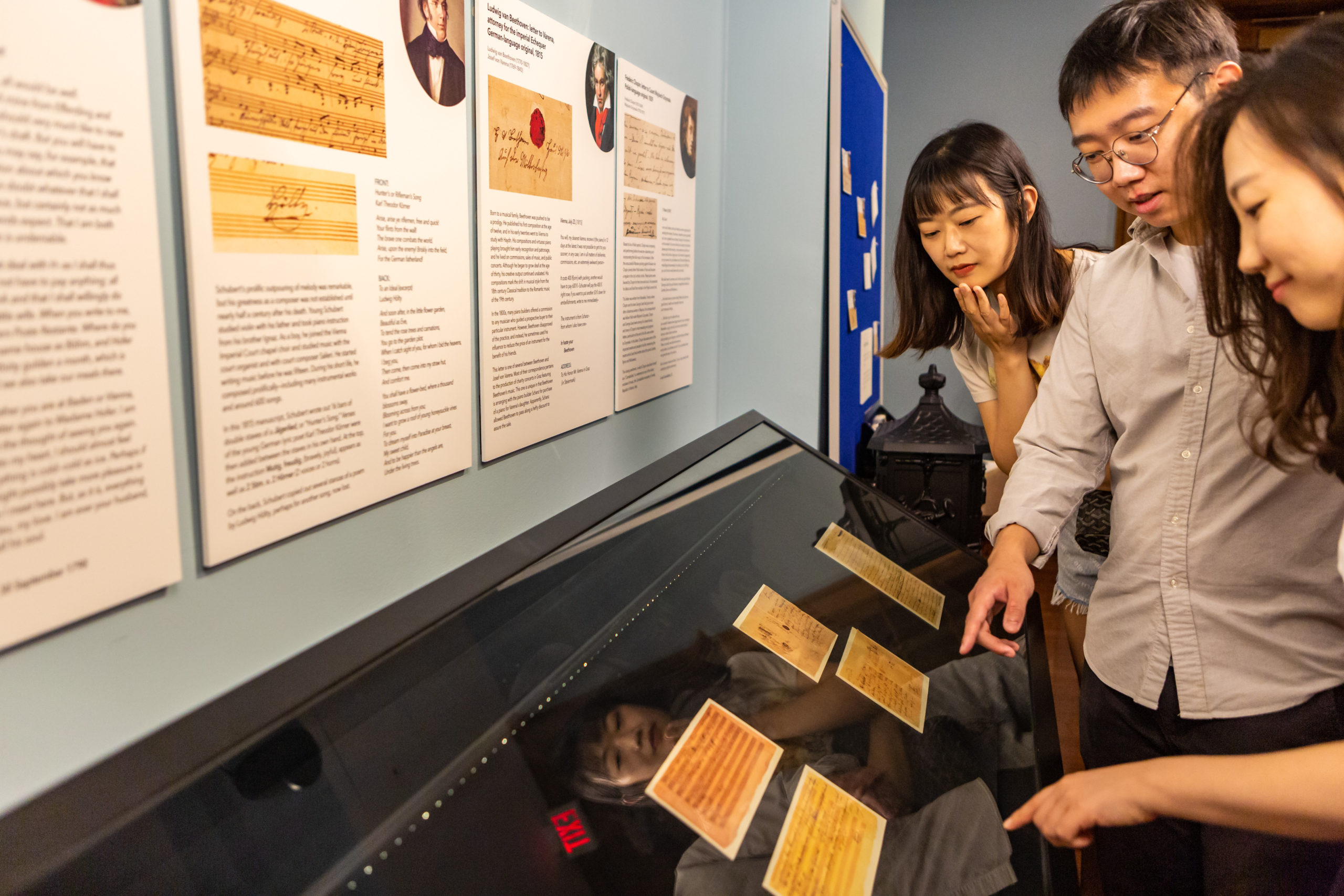Thelma Hunter Recital Room
Dedicated to the memory of pianist and Schubert Club friend Thelma Hunter, the Thelma Hunter Recital Room is a gathering and recital space in the museum. Take a seat and enjoy recordings from Schubert Club performances, demonstrations of early 20th century music players, and learn about composers in their own words in the Gilman Ordway Manuscript Collection.

In addition to hosting the Gilman Ordway Manuscript Collection, events are held in the Thelma Hunter Recital Room including Master Classes, KidsJam education workshops, small recitals and more.
Gilman Ordway Manuscript Collection
Ten years after he began collecting letters and manuscripts, Gilman Ordway wanted a way to share them with a wider audience. He chose the January 1985 opening of the Ordway Center for the Performing Arts, just across Rice Park from Schubert Club’s offices, for their debut. His initial impulse to share has led to a long relationship with Schubert Club, where the Gilman Ordway Manuscript Collection now resides. Over the years Mr. Ordway has added to the first cache with extraordinary letters, manuscripts, and generosity.
In all the current holding includes nearly one hundred rare pieces. They range widely in time: from an 18th century Mozart letter to a 20th century John Philip Sousa. And they range in temperament from Haydn’s effusive letter to his godson to Chopin’s grumblings about his finances.

“I have collected this material as many people choose to collect art. It is a fascinating way to become close to something that has passed through the hands of the geniuses of history.”
Gilman Ordway
In Their Own Words
In the letters of composers, we can find the world they knew. These writings give us a view across time to their sweet victories, nagging anxieties, enduring friendships, banal business worries, and occasional white lies. Mozart exaggerates his success to reassure his wife. Clara Schumann describes a horrific train accident that injured her nephew. Beethoven complains about being poisoned by wine at a Christmas celebration. An annoyed Debussy assures his friend he will visit tomorrow. Grieg implores a conductor to allow him to play his piano concerto himself. Stravinsky enthusiastically replies to a party invitation. And Verdi sketches instructions and dimensions for framing a picture. These intimate letters give us a closer view of the composers’ world and their lives. There is a fascination in coming into contact with the private lives of people whose artistic works have shaped our culture.


